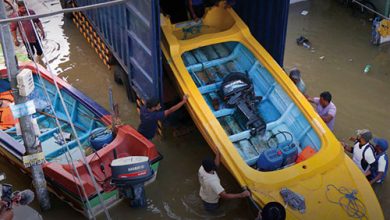
It is June 2021! For some people, 2021 may feel like an extension of 2020 where the realities are ever-changing and unravelling due to multiple threats. These include the continuation of COVID-19, climate change and increasing deforestation; societal inequalities such as poverty, race, class, caste and gender; personal and public insecurities in employment, health and security; and a decline in the quality of life.
CARBON COPY OF YEAR 2020
In many ways, this year seems to be an extension of 2020! – Gloria Spittel
 While these challenges may not impact all nations or every segment of the population equally, they’re part of the larger environment in which we all live.
While these challenges may not impact all nations or every segment of the population equally, they’re part of the larger environment in which we all live.
It’s rather hard not to see, read and comprehend the writing on the wall – although many resort to true doublespeak and professional gaslighting experts often succeed in creating an illusionary world. This is a form of escapism that many may need occasionally as regular exposure to despairing and frustrating news can fray even the strongest of nerves and mentalities.
Regular exposure to the challenges facing the world or one’s country, or even at a personal level – without proper care for well-being, knowledge of coping mechanisms and professional mediation when required – is dangerous to people; and by extension, society – especially if it is strained.
Yet, the reluctance (at times, passing as inability) to face and address reality is dangerous too. Plans can’t be made without an understanding of the present, regardless of religious or supernatural beliefs.
The writing on the wall and its associated chapters must be read if not studied, to pave a way out of the chaos most societies find themselves in today and a future that’s being blissfully imagined by political henchmen.
So what’s the situation of the world today?
Let’s begin with the pandemic. In April, Statista (a provider of market and consumer data) reported daily new cases for April at 889, 975 compared to the 75,749 in April 2020.
At that time, most of the world was in lockdown; but currently, lockdowns are less global in nature, and increasingly more regional and locally specified. However, border controls, PCR testing, and travel bubbles and corridors are becoming the norm for international and even local travel.
However, by April this year, the dominant conversation around COVID-19 was about vaccination, its efficacy against new variants and specifically about vaccine distribution.
In April 2020, the Gavi Vaccine Alliance, the European Commission, France and the WHO partnered to establish the COVAX facility. It’s one of three pillars of the Access to COVID-19 Tools (ACT) Accelerator, which aims to provide equitable access to vaccines numbering
an initial two billion doses by the end of this year.
However, as of April 2021, COVAX has been able to ship only 40.5 million doses to 118 countries. Of the nearly 900 million vaccines administered globally, low-income countries have received a mere 0.3 percent.
The problems relating to equal distribution of vaccines are exacerbated by intellectual property rights and bans on raw material exports – which prevent their manufacture – insular and nationalistic interests, and lax global cooperation and commitment.
As of 25 May, nearly 3.5 million people had died and there were over 149 million active cases worldwide. COVID-19 will linger on – devastating lives, economies and livelihoods – for a while longer.
But while the pandemic continues its rampage, other emergencies have been relentless too. Top among these is the danger presented by worsening climate change.
Although the US under the Biden administration has resumed its commitment to fight climate change, there’s an urgent need for continued global cooperation and understanding. In 2020, even with reduced air travel and commuting, the year was the second warmest on record with a mean temperature of 1.2ºC above the preindustrial average.
Continued burning of fossil fuels and ruinous land use are blamed for much of the greenhouse gas emissions – which in turn cause rising temperatures, loss of ice cover, rising sea levels and more extreme weather – most of which affects low income households, regions and countries.
A one-size-fits-all strategy won’t work to get the world off the dangerous path it is treading.
Unabated deforestation around the world supported by unhinged policies drafted and enacted for the benefit of a few – or worse, in the hope of a better future – are exacerbating climate change. Hope without understanding present realities is as good as delusion.
For instance, of the major challenges facing society today, resolutions call for cooperation – whether it is on the global front or at a local level. For cooperation to take place, opening channels of communication for transparency and laying the foundation for understanding are critical.
This feels like a tall order requiring a new mode of operation and it is only natural to wonder if intermittent responses will delay or prevent this process. Either time or the patience of people will tell – whichever runs out first!
This content is available for subscribers only.





